Special feature of 1905 film network Last week, a Japanese movie full of "starlight" officially broke into the audience’s field of vision in China — — .

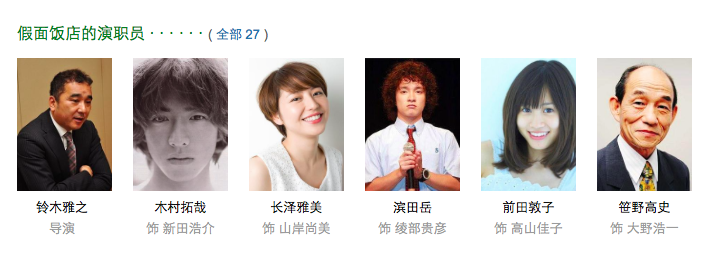
The film "Masked Hotel", starring famous Japanese movie stars Kimura Takuya and Masami Nagasawa, landed in Japanese cinemas in January last year, beating the film released at the same time in one fell swoop, earning 4.6 billion yen at the box office and being recognized by critics.
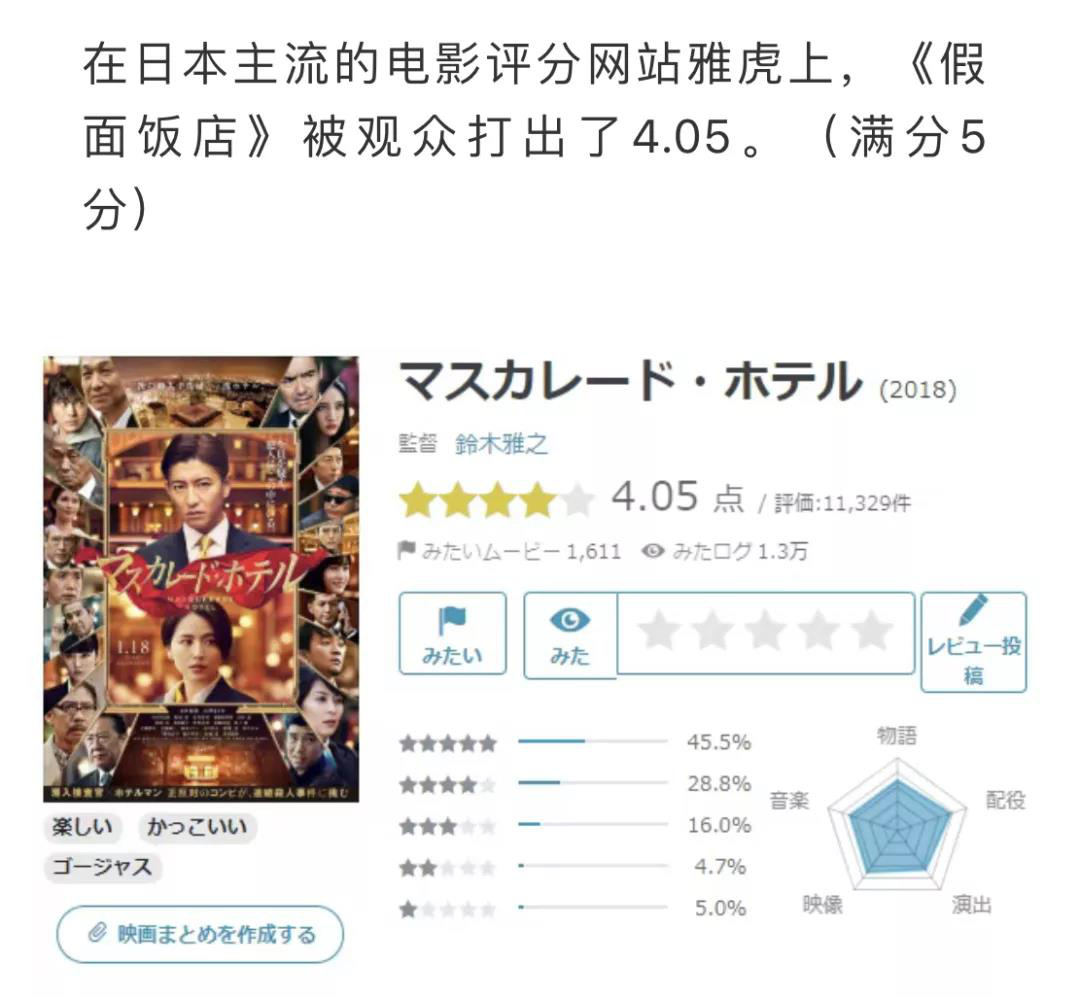
However, when the film was released in China on September 4th, it was questioned by the audience, saying, "I feel too much and bow all the time", "I think this reasoning part can be understood at the age of 6+"and "wasting the card".
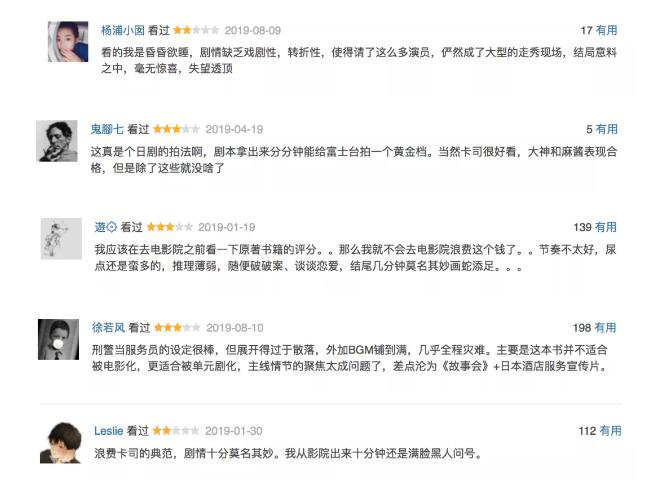
Surprisingly, even Douban, which has a large number of Japanese film lovers, only gave a score of 6.4.
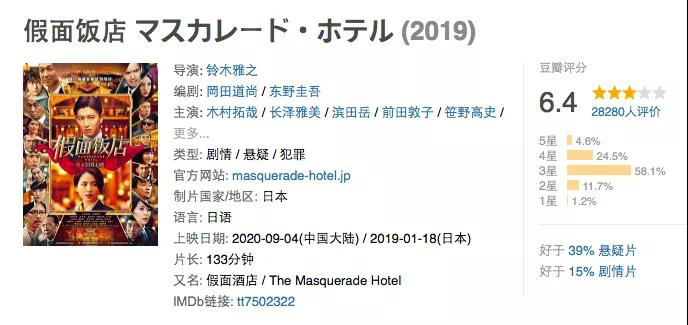
Why did the star-studded "Masked Hotel" meet the criticism of "China Diners"? We specially invited Lu Jianing, an associate professor at China Communication University, to talk about this film with us.
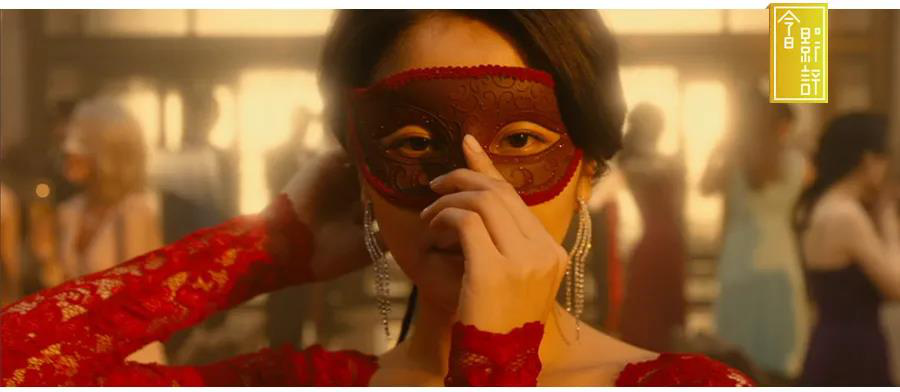
one
Obviously, Kimura Takuya and Masami Nagasawa, the two leading actors in the movie "The Masked Hotel", are very popular in China, and "can be said to be the most well-known Japanese stars in China".
Lu Jianing compared them to Tony Leung Chiu Wai and Zhou Dongyu in China. "They have one thing in common, that is, they are relatively productive, and they are not the kind of stars that you rarely see in movies and TV.".
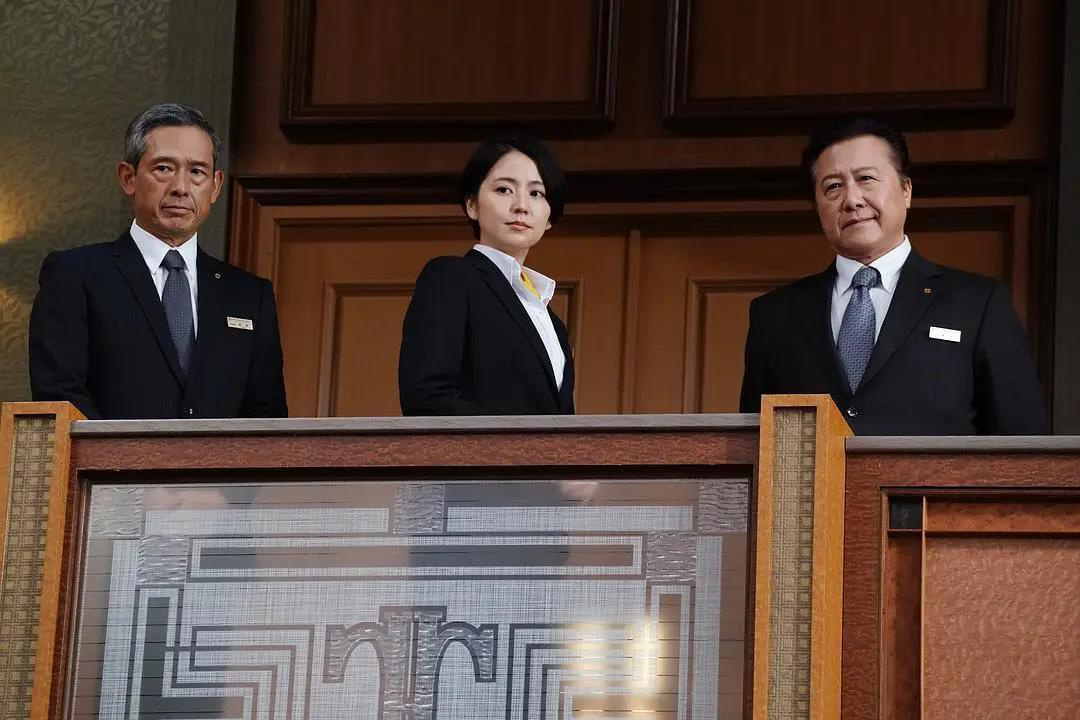
So, why is this movie, which is popular in Japan, neglected in China? "This is a very serious acclimatization," Lu Jianing said. "Just like watching TV, things on suspense channels suddenly cross the frequency and jump into the food column."
That is to say, the film gives the audience a preset suspense type, and the audience will naturally want to see a plot that burns their brains, but in fact, its suspense is not so strong, let alone burning their brains, and the murder plot in the second half is even more sloppy, far less than the similar theme film "Sword Out of the Sheath" which was popular in previous years.
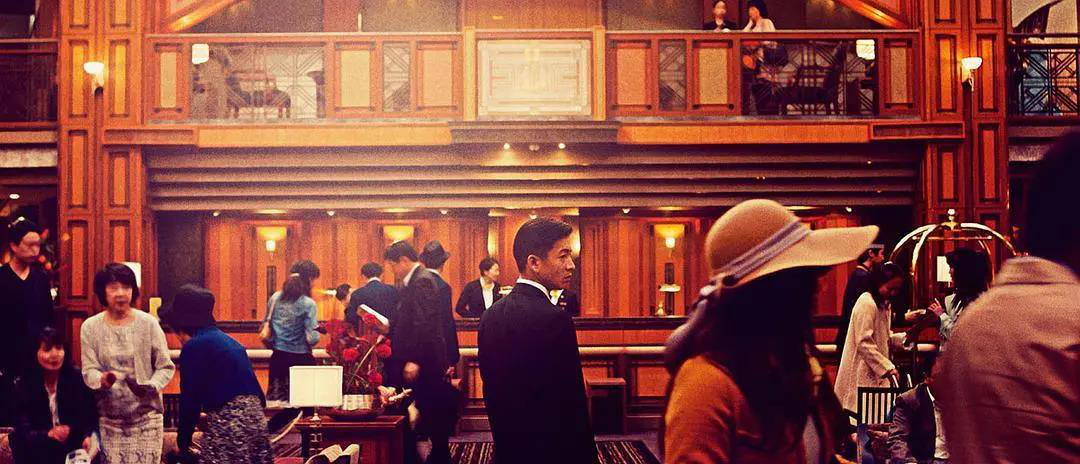
For example, Masami Nagasawa seems to have obsessive-compulsive disorder, and he always puts the paper town with the hotel logo in a suitable position. The audience thought it was an important crime-solving prop, but found that it meant nothing.
The great leap from suspense stories to career stories has caused great resistance among the audience. In contrast, pure professional films, for example, "are much better than this kind of sandwiched situation."
2
Regarding the suspenseful reasoning part of the film, WeChat official account’s "Sir Movie" issued a document saying that "the element of reasoning is just a mask worn by the film, and behind it is more profound thinking and questioning about society".
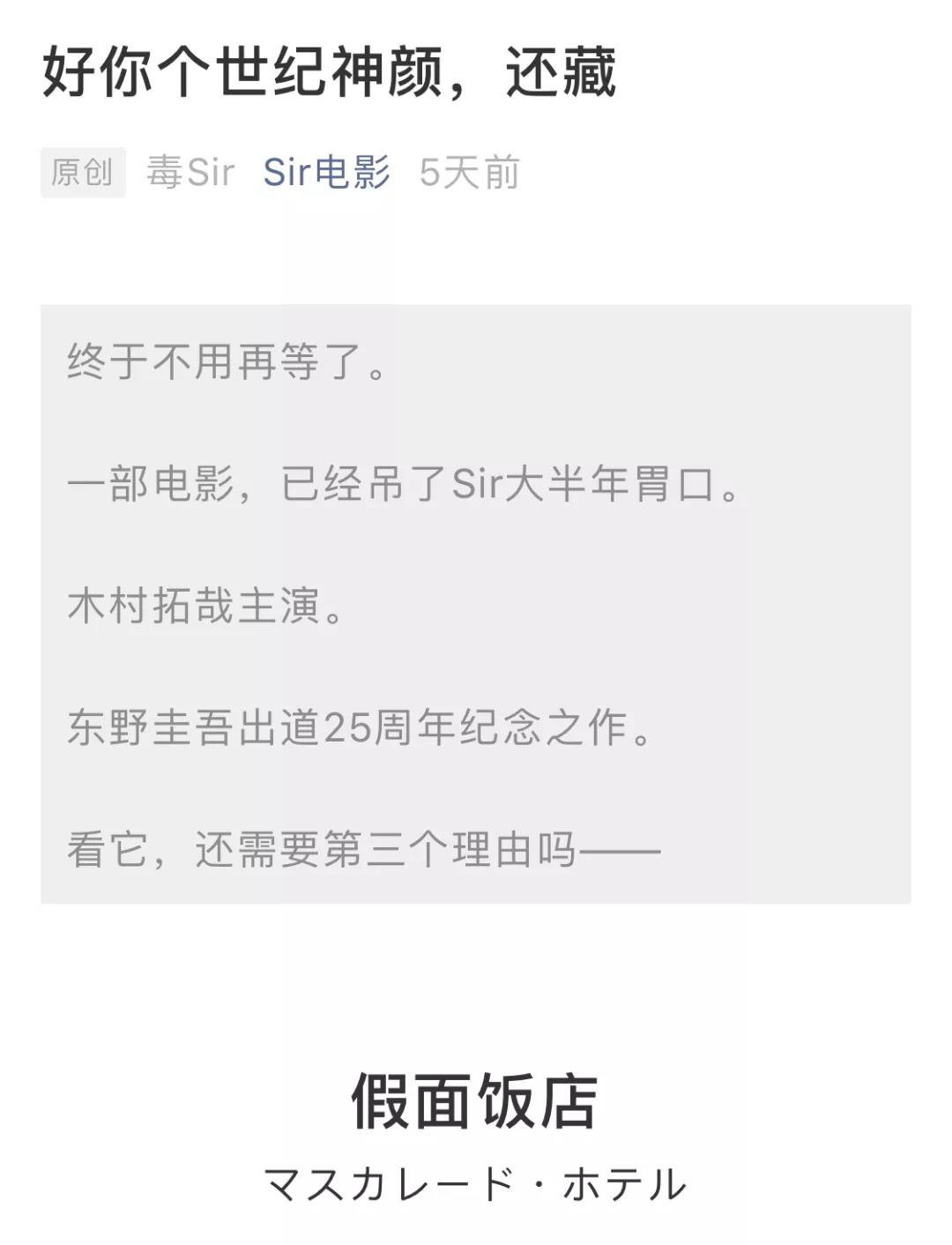
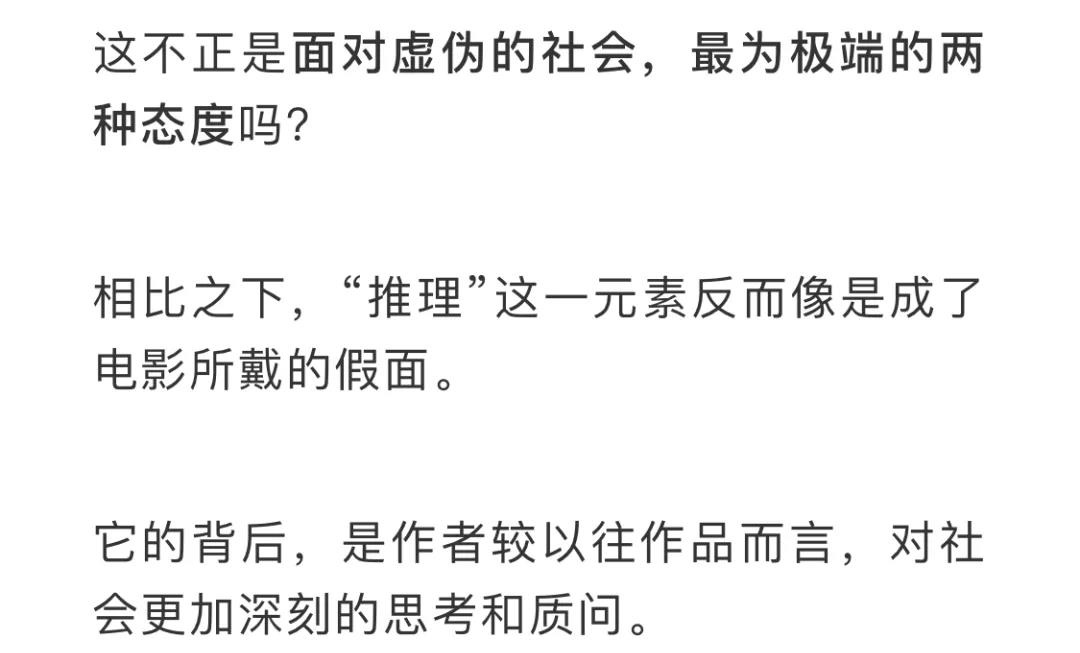
Is the social expression of the film the deep reason that hinders the box office and word of mouth? Under the cloak of suspense, what makes Masked Hotel go further and further away from the audience in China?
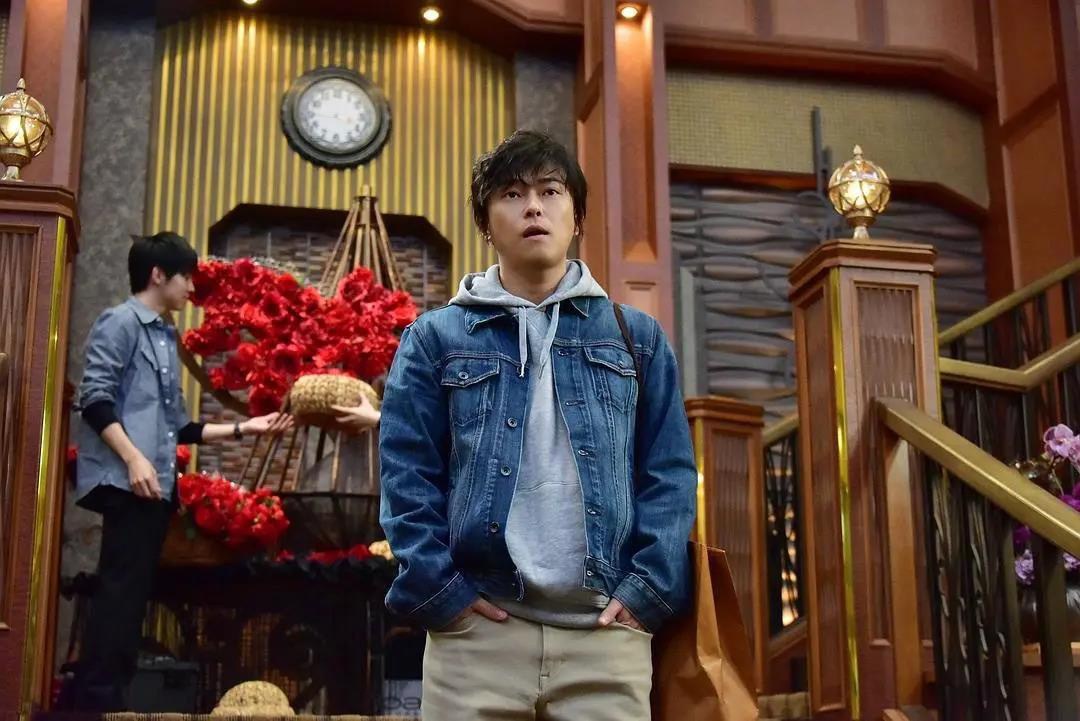
We can see that some Japanese audiences have reported that they can appreciate more profound things from the film, but there is a gap between them and China audiences.
The existence of "mask" in the film, for the audience in China, is to see what intrigues there are after the mask is uncovered, but for the Japanese, it is a culture that has existed from the entertainment and customs industry in the Edo era. Everyone will fabricate their own life experience and identity and deal with people in the service industry, but they still have a good talk with each other and experience some kind of performance fun at the same time. "Moreover, this is an aestheticism tendency. At this point, elements such as’ mask’ are very difficult for China audiences to understand," commented Lu Jianing.
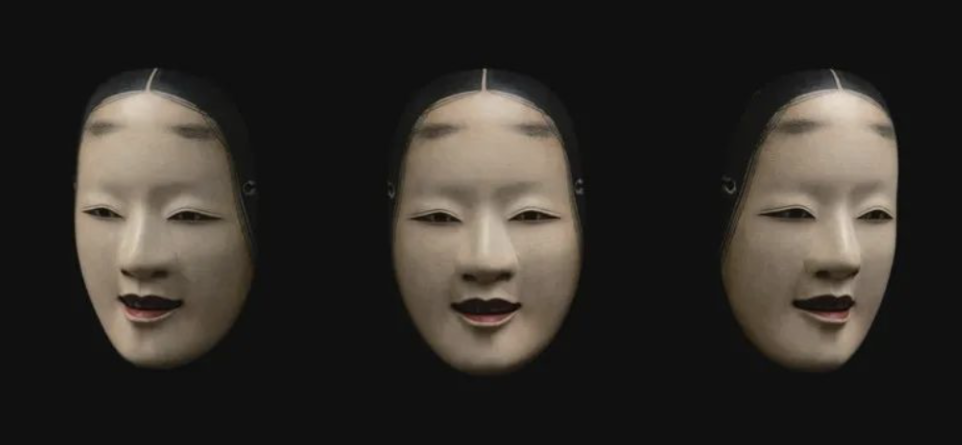
Take the tearful teacher in the film as an example. As a loser who has lost his job and is about to be forced to return to his hometown, his behavior of still going to the hotel to find the pleasure of "mask" is quite confusing to the audience in China.
"We will think, this kind of situation you also ran to the hotel natural and unrestrained? But for the character, maybe he will think it is my last happiness in Tokyo, where I can ask the hotel people all kinds of requirements to become a decent and elegant person, "Lu Jianing analyzed." As a hotel person, as long as you are a guest, you don’t care what your background is, it’s their professionalism. "
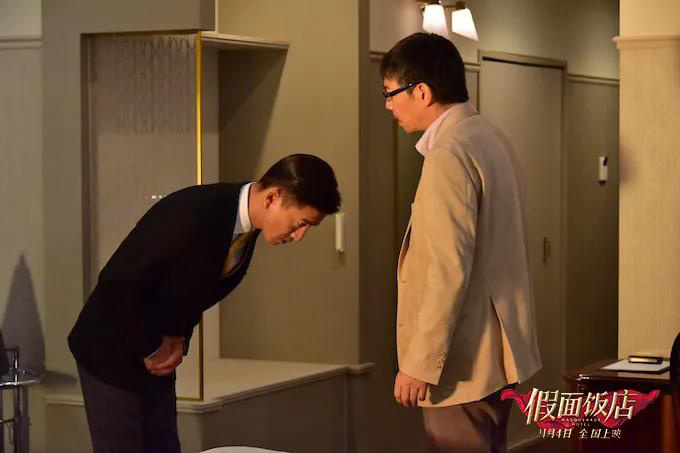
In the current social environment in China, young people are keen to express their true selves through social media. For stars, we also like to see the truest side of their lives. "But this movie seems to run counter to our current trend," Lu Jianing said.
Therefore, successful mystery stories or suspense movies in China attach great importance to sociality, revealing the truth, criticizing hypocrisy and other topics, "which is very inconsistent with the focus of this film".
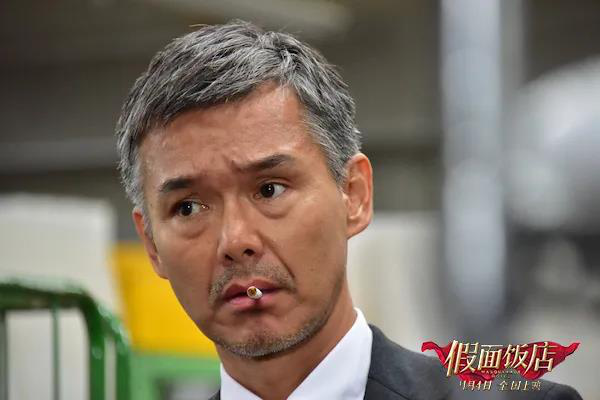
Finally, Lu Jianing pointed out that the internal circulation of Japanese films (that is, self-production and self-marketing) has been going on for a long time. "They sometimes don’t consider overseas markets like the United States."
In their view, the film shows the inside story of the hotel’s internal management and service industry, and invited two stars of this level to play it, which has already possessed certain wonders. "But in fact, it may be that they didn’t make full use of their own resources," Lu Jianing said. "Keigo Higashino’s novels, Japanese reasoning and Japanese idol stars really have more room to play."
关于作者